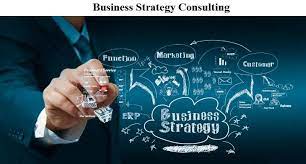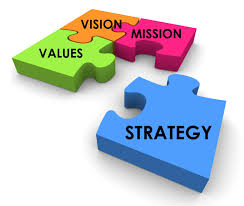Unlocking Success: The Strategic Impact of PR Consultants in Today’s Business World
The Role of PR Consultants in Today’s Business Landscape
In today’s fast-paced and competitive business environment, the role of PR consultants has become more crucial than ever. PR consultants play a vital role in helping businesses effectively communicate with their target audience, manage their reputation, and build strong relationships with stakeholders.
One of the key responsibilities of PR consultants is to develop and implement strategic communication plans that align with the overall goals and objectives of the business. They work closely with clients to understand their brand, target audience, and industry landscape to create tailored communication strategies that deliver results.
PR consultants are experts in media relations, crisis communication, content creation, social media management, and more. They utilise a range of tools and techniques to ensure that their clients’ messages are delivered effectively and resonate with their audience.
With the rise of digital media and social networking platforms, PR consultants also play a crucial role in managing online reputation and engaging with customers in real-time. They monitor online conversations, respond to feedback, and leverage social media channels to enhance brand visibility and credibility.
Furthermore, PR consultants help businesses navigate through crises and manage challenging situations that may impact their reputation. They provide valuable guidance on how to communicate effectively during times of crisis, maintain transparency, and rebuild trust with stakeholders.
Overall, PR consultants act as strategic partners to businesses, helping them navigate the complex world of communication and stand out in a crowded marketplace. Their expertise, insights, and creativity contribute significantly to enhancing brand reputation, driving engagement, and ultimately achieving business success.
Understanding PR Consultants: Roles, Costs, and Career Paths
- What is a PR consultant?
- How much should a PR consultant charge?
- What are 7 types of PR?
- How much does a PR person cost?
- How do I become a PR consultant?
- What are the big four PR firms?
- How much does a PR consultant cost?
What is a PR consultant?
A PR consultant, short for public relations consultant, is a professional who specialises in managing communication between an organisation and its target audience. PR consultants play a crucial role in helping businesses or individuals build and maintain a positive public image. They are experts in crafting strategic communication plans, developing relationships with the media, creating compelling content, managing crises effectively, and enhancing brand reputation. PR consultants work closely with their clients to understand their goals and objectives, tailoring communication strategies to meet specific needs and achieve desired outcomes. Their expertise lies in leveraging various communication channels to convey messages that resonate with the intended audience, ultimately contributing to the overall success of their clients’ communication efforts.
How much should a PR consultant charge?
When it comes to the question of how much a PR consultant should charge, the answer can vary depending on several factors. PR consultants typically charge based on their level of experience, expertise, the scope of work required, and the specific needs of the client. Some PR consultants may charge an hourly rate, while others may offer project-based or retainer fees. It’s essential for businesses to discuss their budget and expectations upfront with a PR consultant to ensure transparency and alignment on pricing. Ultimately, the value that a PR consultant brings to the table in terms of strategic guidance, industry insights, and tangible results should be considered when determining their fees.
What are 7 types of PR?
In the realm of public relations, there are seven primary types of PR practices that encompass various strategies and approaches to communication. These include media relations, crisis communication, internal communication, community relations, government relations, investor relations, and social media management. Each type serves a distinct purpose in shaping and maintaining a company’s reputation, engaging with stakeholders, and fostering positive relationships within different spheres of influence. Understanding these diverse facets of PR is essential for businesses seeking to effectively communicate their messages and navigate the complexities of the modern business landscape.
How much does a PR person cost?
The cost of hiring a PR person can vary depending on several factors, such as their level of experience, expertise, location, and the scope of services required. PR consultants typically charge either an hourly rate, a monthly retainer fee, or project-based fees. Rates can range from £50 to £250 per hour or more, with retainer fees starting from £1000 per month. It’s important to consider the value that a skilled PR person can bring to your business in terms of brand visibility, reputation management, and stakeholder engagement when evaluating the cost of their services. Ultimately, investing in a reputable PR consultant can yield significant returns in terms of enhancing your brand’s presence and credibility in the market.
How do I become a PR consultant?
To become a PR consultant, individuals typically need a combination of education, relevant experience, and key skills. Many PR consultants have a degree in public relations, communications, journalism, or a related field. Gaining practical experience through internships or entry-level positions in the industry can also be beneficial. Developing strong communication skills, both written and verbal, is essential for success in this role. Additionally, having a good understanding of media relations, social media platforms, and strategic planning is important for aspiring PR consultants. Building a network of contacts within the industry and staying updated on current trends and best practices can further enhance one’s prospects of becoming a successful PR consultant.
What are the big four PR firms?
One frequently asked question in the realm of PR consultants is, “What are the big four PR firms?” The term “big four PR firms” typically refers to the largest and most renowned public relations agencies in the industry. These firms, namely Edelman, Weber Shandwick, FleishmanHillard, and Ketchum, are known for their global reach, extensive client portfolios, and strategic communication expertise. They have established themselves as leaders in the field of public relations, setting industry standards and delivering impactful campaigns for a diverse range of clients across various sectors.
How much does a PR consultant cost?
The cost of hiring a PR consultant can vary depending on several factors, including the scope of work, level of experience, and the specific services required. PR consultants typically charge either an hourly rate, a monthly retainer fee, or project-based fees. Hourly rates can range from £50 to £200 or more, while monthly retainers may start from £1,000 and go up based on the consultant’s expertise and the complexity of the project. Project-based fees are determined based on the specific deliverables and objectives agreed upon between the client and the consultant. It is essential for businesses to discuss their budget and expectations with potential PR consultants to find a pricing structure that aligns with their needs and goals.











